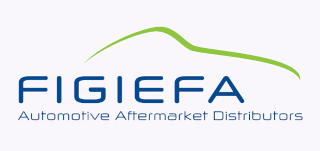FIGIEFA welcomes the new study released today by FIA Region I, the international association of motorists consumers and road patrols. It reveals and provides evidence that the “Extended Vehicle” (ExVe) with external backend servers, as promoted by vehicle manufacturers, would cause losses to independent stakeholders and consumers reaching €65 billion as early as 2030.
The new study “The automotive digital transformation and the economic impacts of existing data access models”(1), issued today by FIA Region I, assesses the long-term economic consequences of current closed data access models promoted by vehicle manufacturers. It stresses in particular that the negative impacts of such models on independent aftermarket service providers will allow for vehicle manufacturers to further integrate themselves into the aftermarket, and in turn offer them much stronger control over relations with the end consumers. This would have the effect of ultimately reducing consumer choice, competition and societal benefits of a thriving automotive sector. It would gradually increase costs and by 2030, it would result in €33 billion losses for European independent automotive aftermarket operators and in €32 billion additional costs for motorists.
“Harming SMEs and consumers to such extent is not acceptable and will require all possible legislative measures to guarantee a safe, secure, direct, in-real-time, bi-directional access to in-vehicle data, functions and the users and to ensure benefits to consumers, as well as competition and innovation in digital services ‘around the car’” stressed Sylvia Gotzen, the CEO of FIGIEFA.
Proprietary data access models, where the vehicle manufacturers have privileged access to the vehicles and where third parties can only access in-vehicle data via an external backend server under the manufacturers’ governance have raised concerns among consumers, independent businesses(2) and the European Commission(3) over the last years.
This study well complements the practical field test study “General Analysis on OEMs 3rd party telematics”(4) released in November 2018 by AFCAR, the Alliance for the Freedom of Car Repair in Europe. With concrete examples it pointed at numerous technical and commercial limitations induced by the “Extended Vehicle” model. On the other hand the study also showed that a number of vehicle manufacturers are developing proprietary open-telematics platform, accessible only to chosen third parties.
Downloads
- (1) Study “The automotive digital transformation and the economic impacts of existing data access models” (March 2019)
- (2) Manifesto “For fair digitalisation opportunities” (April 2018)
- (3) Commission’s Communication “On the road to automated mobility: An EU strategy for mobility of the future” (May 2018)
- (4) General Analysis “OEM 3rd party telematics” (December 2018)
